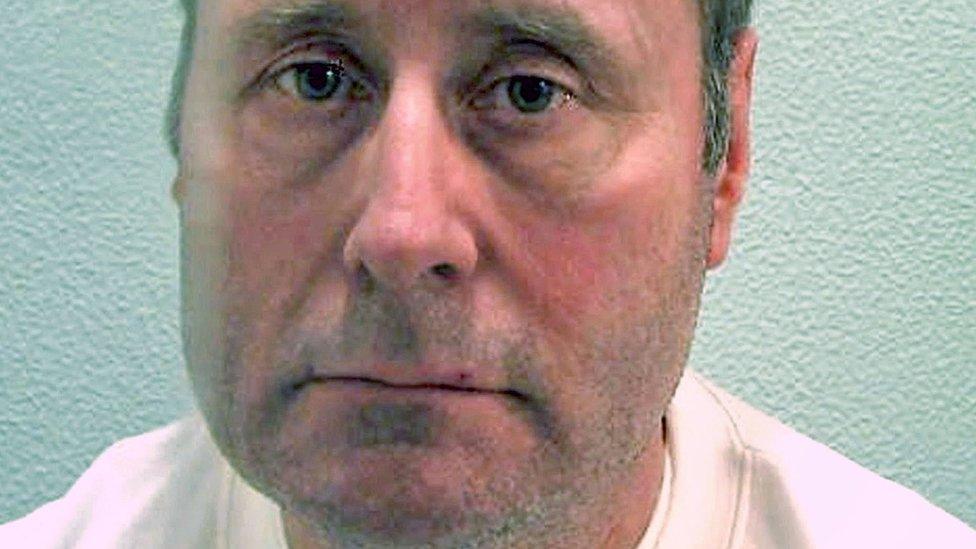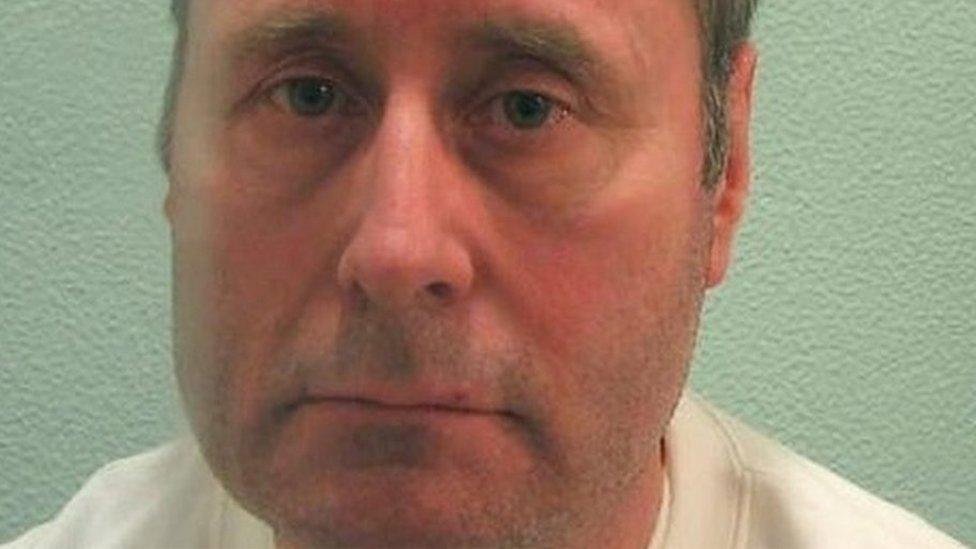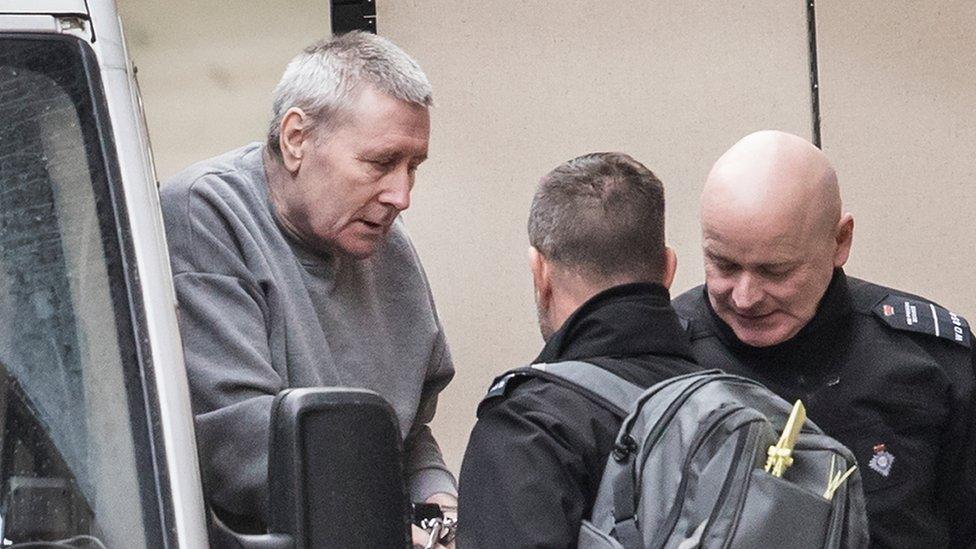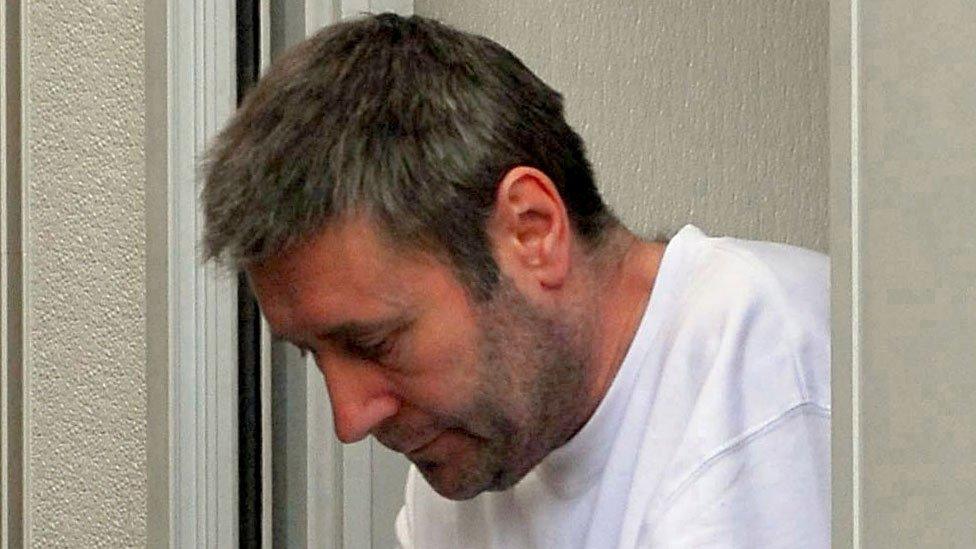John Worboys Parole Board decision 'ignored' wider allegations
- Published
Victim: I will do whatever it takes to keep Worboys behind bars
The Parole Board failed to consider "critical evidence" against rapist John Worboys before approving his prison release, a lawyer for two of his victims has told the High Court.
The lawyer said the evidence related to "wider allegations" of sexual attacks.
Police believe that Worboys - jailed in 2009 for assaults on 12 women in London - had more than 100 victims.
Lawyer Phillippa Kaufmann QC said the board was wrong to decide Worboys took "full responsibility" for his crimes.
'Exceptional step'
Worboys is thought to have carried out more than 100 rapes and sexual assaults on women in the capital between 2002 and 2008.
The 60-year-old, who has changed his name to John Radford, is watching the trial via video link from prison.
The court heard he denies any allegation other than the offences he was convicted of.
Legal papers submitted to the High Court show that as recently as September last year, the prison authorities believed he posed such a risk that he needed to remain in a Category A prison.
Three months later the Parole Board decided that he should be let out with stringent licence conditions, without having been assessed at a less secure prison.
Ms Kaufmann said this "highly exceptional step" was "in the face of opposition" from senior prison managers, prison psychologists, the probation service and the justice secretary.

John Worboys was jailed in 2009 for a string of sex attacks on women
Ms Kaufmann said the claims of Worboys' further crimes "completely undermined" the board's decision.
She told the court: "It is obvious, absolutely obvious, that this evidence of wider offending had a central bearing on all of those conclusions that formed the basis of the Parole Board's conclusion that there had been a reduction in risk."
Ms Kaufmann added it would have been fair to consider these allegations as the board did not have to determine whether he had actually committed the crimes.
She said it would be "extraordinary" to release Worboys straight from a Category A prison, the highest security prison, into the community.

Analysis: By Danny Shaw, BBC home affairs correspondent
At last, the cloak of secrecy surrounding the Parole Board's decision-making in this case has been lifted.
Thanks to the judicial review challenge the public, and John Worboys' victims, can find out why the Board ruled it was safe to release him.
Its decision was apparently influenced by assessments from three independent psychologists all of whom at some stage had been instructed by Worboys.
One expert initially recommended he be moved from HMP Wakefield, a high security jail, to an 'open' prison, which allows inmates more freedom. That's the usual route to eventual release, taken by those serving life or indeterminate sentences. It enables the authorities to test whether prisoners can be trusted in a less secure environment where they're allowed to spend time working in the community.
But the psychologist later changed their view and agreed with two other psychologists that the 60-year-old sex offender should be let out straight away - direct from Wakefield jail.
To be released from a Category A prison, the court heard, is "very unusual". Nevertheless, their advice was accepted by the three-member parole panel, resulting in this landmark legal challenge.

Ahead of the High Court challenge against the decision to grant him parole, victims said they were not properly informed and warned of risks to women's safety.
London Mayor Sadiq Khan has also launched a judicial review against the action to free the former black-cab driver.
During the High Court challenge, three judges are hearing evidence over two days from victims and Mr Khan.
As the case got under way, Mr Khan said in a statement that Worboys presented a "significant threat" to safety.
He said: "I have been clear that he shouldn't be released at the very least until the decision has been properly independently scrutinised and we are reassured that those in positions of power and responsibility are doing everything they can to keep all his victims, and the rest of us, safe."
The Sun newspaper is also part of the legal challenge, after it was granted permission last month to challenge the Parole Board over not publishing its decision.
The Parole Board has previously apologised to victims who were not told about the decision but said it was "confident" Worboys would not re-offend.
The case continues.
- Published4 January 2018

- Published7 February 2018

- Published19 January 2018

- Published4 January 2018
